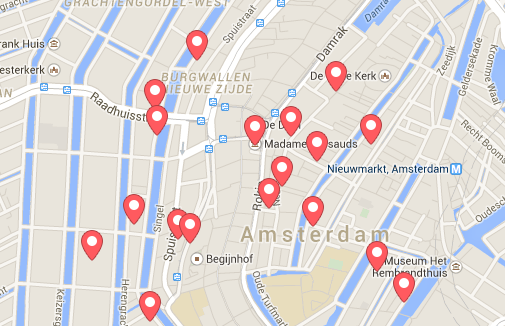Airbnb report reveals Amsterdam rental levels and effects of new crackdown


Airbnb has for the first time revealed that its landlords hosted 2.5 million overnight stays in Amsterdam in 2017.
The landlords had 800,000 visitors, who stayed an average of 3.4 days – almost twice as long as the typical stay in a hotel or guest house that year, the company claims.
The numbers are revealed in a report written by consultancy Ecorys and commissioned by Airbnb, and which looks at the impact of three proposals by Amsterdam city government to control spiralling levels of tourism.
Ban
Yesterday, the city government announced its intention to ban Airbnb rentals entirely in three parts of the city, including the red light district, due to the perceived negative impacts on social cohesion, rising house prices and inequality.
Next year, the maximum number of days that private house owners can rent to tourists will be limited to 30 days, from the current 60.
Meanwhile, Dutch MPs have proposed treating home rental infringement as a fiscal crime and cracking down on tax evasion. The government aims to create a national registration scheme for private rentals within a year, following concerns about illegal rentals and ‘overtourism’.
The new Ecorys report, however, points out that Airbnb accommodation – not including other short term rental brokers such as Booking.com – represents a modest 11.9% of all overnight stays in the Dutch capital. It also claims that its guests are responsible for more than a fifth of the €2.3 billion spent in Amsterdam.
New rules limiting private rentals to 30 nights a year will, the report says, result in 310,000 fewer overnight stays while new hotels in the pipeline will add 3.7 million annual overnight stays by 2022.
‘Despite these rules [to control tourism] in the years ahead many more tourists will come to Amsterdam…The number of visitors is expected to grow by about 2.1 million,’ says the report.
It also argues that Airbnb apartments are spread over the city more than hotels, which are concentrated in the central areas.
‘Measures aimed at curbing Airbnb-related tourism…will have a limited effect on the total numbers in Amsterdam,’ it adds in its conclusions. ‘But because Airbnb guests spend more on average, the effect on spending will be relatively larger.’
Round table
Bernard D’heygere, a spokesman for Airbnb, told DutchNews.nl the company has written to Amsterdam council to organise a ‘round table’ discussion with other tourist-related organisations, and the business has said it welcomes a registration scheme.
A spokesperson for Amsterdam city council said that the figures in the Ecorys report match the amounts Airbnb transfers in tourist tax.
‘We are aware of the invitation from Airbnb for the round table,’ she added. ‘However, I’d like to point out that the city of Amsterdam is already in contact will all kinds of stakeholders in the tourism sector and this topic is a high priority for both the municipal council, mayor and deputy mayors.’
DutchNews.nl has asked Airbnb for the full dataset behind the new report, and a comment.
This article was edited on October 12 to reflect Airbnb’s answers to questions.
Thank you for donating to DutchNews.nl.
We could not provide the Dutch News service, and keep it free of charge, without the generous support of our readers. Your donations allow us to report on issues you tell us matter, and provide you with a summary of the most important Dutch news each day.
Make a donation